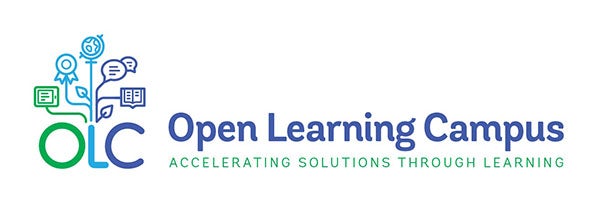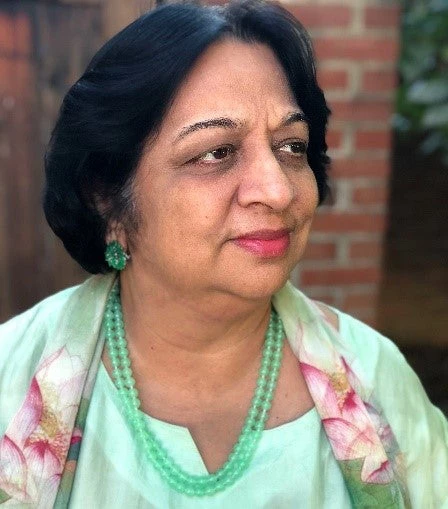
Battushig Myanganbayar, an MIT student, was at the launch of the Open Learning Campus (OLC) of the World Bank Group (WBG) on January 12. Battushig had an incredible journey from Mongolia to the corridors of one of the world’s top technical universities, which was made possible by taking edX courses online. Battushig’s story, is only one of a million points of light emerging across the world: more students and adult learners are taking advantage of the Internet and educational technologies to acquire knowledge and apply learning in their daily lives.
For example, “eLearning Africa” is an annual event that I have had the privilege of being associated with through its advisory committee. Each year we see a huge spike in interest from participants throughout the continent. Recently, Team Afri One won a hackathon, sponsored by GiZ, the German development institution, and eLearning Africa. One of the team members, James Mugo Muna said, “We are trying to get people to experience cultures in new and interesting ways.” Their gamified app promotes interactivity and engagement in other cultures resulting in cultural empathy
Last Thursday, the Public Broadcasting System (PBS) aired a fascinating program on boat schools in Bangladesh, which serve the schooling and adult educational needs of isolated communities. Traditional country boats have been jerry-rigged to provide two decks; one for students and the second for adult learners, with Internet access provided through electricity generated from rooftop solar panels. Children and parents who earlier could not access education are able to slake their thirst to learn with the same content available at their fingertips that you and I have access to. Development practitioners now have an effective method of reaching these villagers with good practices.
Taking learning to scale for accelerating development
E-Learning is equally important to accelerate for development, and for this to happen the interconnections between knowledge and learning must be strengthened for the development practitioner.
As a global development institution, the World Bank Group (WBG) produces expert knowledge on development issues. Yet, the impact of this knowledge can only be fully realized when transformed into learning for everyone—for our development partners, practitioners, policy makers, our staff and for the public. Of the approximately $700 M we spend annually on knowledge products of various types, barely 2% of knowledge on development issues is currently translated into structured learning that a Mongolian, Bangladeshi or Nigerian policy maker can relate to as actionable content.
The OLC is our response to address this development learning gap and dive into the revolution in learning the world is witnessing today. Digital and online learning has the potential of scaling up and reaching the millions who are eager to learn, apply new knowledge, and more importantly, continue learning as they progress through their careers, and acquire new competencies. This outreach and democratization of learning has a huge potential to provide insights on the best possible solutions for complex development problems that build on good practices, learn from failures and mine the tacit knowledge available through thousands of development practitioners.
The OLC builds on our earlier e-Institute, which paved the way for development audiences to learn at their own pace from any location. In just four years we reached 250,000 learners in 190 countries through six MOOCs and more than 300 e-courses.
Flexible pathways to learning
Learning today is thankfully not a matter of sitting in a classroom and listening to a lecture. It is available to us at our fingertips, ‘just-in-time’ and ‘just-enough’ in formats that we can handle. Three virtual schools within the OLC guide the learner to the appropriate pathway:
-
The first school, WB Talks, enables the learner to explore nuggets of knowledge through talks, podcasts, videos, and games. These bite-sized learning opportunities are equally useful for the busy professional and the inquisitive student. Bite-sized learning modules are packaged to provide precise information needed by the learner.
-
The second school, WB Academy, helps the learner to unpack deep learning related to development challenges and solutions through virtually facilitated or self-directed e-courses, MOOCs, and materials from face-to-face courses. For example, the WBG report on climate change, “Turn Down the Heat: Why a 4⁰ Warmer World Must Be Avoided,” was offered as a MOOC, and we had more than 30,000 learners from 190 countries across the world participate, with approximately 70% from developing countries.
-
The third school, WB Connect, enables learners to engage with others through peer and expert learning to find crowd-sourced solutions to development challenges. Using a range of tools, from social media to mobile texts, knowledge exchange can be promoted between WBG staff, clients, partners and global citizens.
Reimagining learning
We modeled the OLC on successful digital learning achievements, such as the Khan Academy, TED, Aspen Institute, and MOOCs hosted by Coursera and edX, among others, as well as the latest developments in adult learning pedagogy.
While the OLC has a modular framework that is customizable and multi-formatted, it also encourages interactive engagement by participants. Users can rate courses, receive personalized recommendations and seek expert advice. There is an opportunity to self-assess learning progress, share ideas and collaborate with others anywhere and anytime.
The OLC has a strong focus on peer learning. We believe in more than the traditional hierarchical methods of knowledge transfer from teacher to student or donor to recipient. We believe valuable learning can be shared by and between anyone. A recent MOOC had approximately 10,000 conversations in three weeks. This by-product of our courses and tools helps in the co-creation of solutions for some of our toughest development problems.
Our philosophy is that for online learning to be interesting and effective it has to be creative, in terms of grabbing learner attention, providing interactivity with experts, peers and content and creating opportunities for dialogue and discussions that capture tacit knowledge and feed this back into the learning loop.
Please join the Open Learning Campus to learn and co-create solutions for development.



Join the Conversation